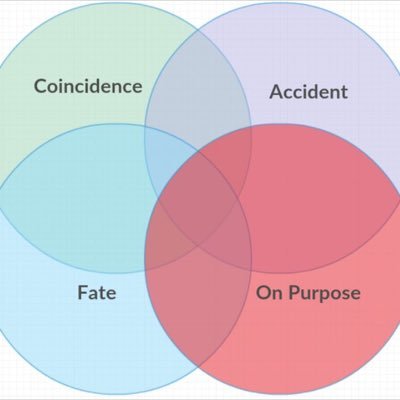There are three major ways I've seen supporters of Hillary Clinton react to Donald Trump winning the election:
- “Everything will be fine anyway”
- “I'm just glad it's over”
- Tantrums and tirades
While none of these reactions is fully rational, and for varying reasons, there is one thing these groups have in common: they don't know. None of us know. It's not merely that we aren't psychics or time travelers, as some people would have you believe. We obviously are not. But this particular president-elect is seemingly far more unpredictable than any to come before him. His radical ideas coupled with a highly volatile temperament make him unlike anything America has ever seen.
Many Clinton voters are looking for a silver lining, and the one that seems to be at the forefront of the discussion is the potential exposure of the flaws in America’s political system.
Many Clinton voters are looking for a silver lining, and the one that seems to be at the forefront of the discussion is the potential exposure of the flaws in America’s political system.
“This will reveal all that is wrong with our country, and reform will hopefully follow.” -My summary of what people on my Facebook news feed are saying
While this optimism is somewhat commendable, it is a drastic oversimplification of the state of the future for America, and of the state of the future for the world.
The American political system is a system (you're welcome for this tremendous insight).
With Donald Trump as our president, our system is likely to be stressed to a greater extent than it otherwise would have been. You could argue that this is probably a good thing. I'm honestly not sure that I would disagree with you. But just because something new might work out in the long run doesn't mean that it's worth it to find out.
Here are a few examples of stressors and systems, and how they can be both good and bad:
The Human Body
Exercise stresses the muscles. To a certain extent the damage it inflicts (specifically in weight training) has a positive long-term effect. But too much muscle stress often causes injuries.
Vaccines quite literally imitate diseases to help the immune system to become strong and learn to fight off the diseases in the future. Another example of positive stress, but again, too much vaccine can make a person sick.
In the movie Deadpool (yes I’m using a fucking superhero movie to make a scientific argument), some people are subjected to extreme torture and either die or get superpowers. Fortunately for Deadpool, he develops superpowers (I’m not sure why no one has tried this in real life...).
Something we can all agree on: Deadpool is fucking awesome.
The US Economy
In 2008 the US financial system collapsed to a largely unprecedented degree. The stock market is in better shape now than it has ever been, and one could argue that the exposure of the flaws and corruption of the big banks has already had a positive impact. However, we should remember that the revival of the economy was far from inevitable. America almost hit a breaking point, and without emergency reforms (most notably the government bailout) there’s a chance our economy might still be sputtering out of control.
There are plenty of people who did in fact hit their breaking points, losing so much money so quickly that they had to sell out near the bottom due to margin calls. They were unable to ride out the turmoil. The stress was clearly too much for the bank accounts of many Americans, and a lot of people wound up broken.
Israel and Judaism
I went on Birthright to Israel this past August. At one point during the trip, the group was engaged in a discussion about anti-semitism, debating whether it was generally a good or bad thing for the state of Israel and the Jewish people. To my surprise, a good chunk of the group actually argued that Jewish persecution has unified Judaism in the long run. But anti-semitism was a direct cause of the Holocaust and could have easily wiped out the entire religion.
My argument is that anti-semitism stressed Israel and Judaism to an extremely significant degree, but fortunately not to the absolute breaking point. Hitler was on his way to exterminating a group of people, but the Jews ultimately rebounded, and therefore some Jews are able to argue that anti-semitism was good for Israel. Had Hitler carried out his intentions a bit further, there might not currently be any Jews left to even make this point (or I guess there might also just be a bunch of Jewish Deadpools).
And then this would've happened...
Change is not inherently anything. Change can be good, and much of it is. But change can also be bad. Change can even be neutral. Change can destroy things or propel them forward. Change can simply have no significant consequences. But all agents of change are different, and should be looked at on a case-by-case basis.
Working out and getting flu shots are good kinds of change, with a fairly obvious positive expectation. Hitler was a bad kind of change, with a fairly obvious negative expectation (and result). Donald Trump… we don’t know. But based on the things he’s said and his overall attitude, intellect, and treatment of other human beings, it’s difficult to foresee this as the positive expectation kind of change.
(FiveThirtyEight has documented some of Trump’s suggested proposals and discussed some potential implications)
Donald Trump is unlikely to destroy American society. He’s unlikely to destroy the economy. He’s unlikely to “destroy” anything. But in my view, even if we go out on a limb and say that Trump “probably” will bring about good change in the distant future, the risk of him destroying a system (whether it’s socially, economically, or even globally) is large enough to offset the potential gains. The small chance that changing things will have terrible consequences is sometimes significant enough that we should just prefer the flawed status quo. Some things need to progress gradually. And to say that most changes have little or no impact anyway is an oversimplification that completely misses the point.
I’m not saying that there aren’t Americans who are being severely crippled by wealth inequality, bigotry, and other systemic problems. There certainly are, and there are perhaps more of them than privileged white people like myself generally like to admit. It's clear that those problems and those people need to see some change. I don’t think Donald Trump will really be able to help them in the near future, but what I’m suggesting is that he may be able to help them in the long run, and I STILL don’t think it’s worthwhile for us to find out. Even if we expected some long-term good to come out of his presidency, four years of Trump is still a bad proposition for America. Change can be a lot of things, but drastic change is not necessarily an answer. Stress a system too much, and you run the risk of breaking it.



